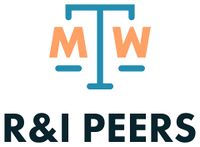|
The Marina proposal overall aim is to create an all-inclusive Knowledge Sharing Platform (KSP) catalysing and organising the convergence of already existing networks, communities, on-line platforms and services providing an online socio-technical environment that facilitates and stimulates the direct engagement of researchers, Civil Society Organisations (CSOs), citizens, industry stakeholders, policy and decision makers, research funders and communicators for improving Responsible Research and Innovation (RRI).
Background and Overview
Federating RRI Communities and stakeholders is a complex task mainly due to the interactions of controversial nature, the implications and consequences of the current and future research and innovation activities. This complexity ought to be modelled, clustered and approached by a systematic set of actions. This is the starting point of the MARINA philosophy.
There is still significant work to be done on better aligning EU research and innovation with societal needs, and harmonization in EU innovation policy. MARINA will make a major step forward in addressing this requirement across a range of vital societal issues through its focus on marine related challenges. Although focusing on the marine thematic area, and drawing from all (not only marine) RRI communities, projects, actors, etc. and from existing good practices and findings, the project will develop RRI-methods and policy support tools for marine related policies. However as these clearly address a range of key societal challenges the KSP developed will be highly relevant to other initiatives with a focus on other policy areas.
To this purpose a range of specific, broad scale, key strategic issues which require the full development of an RRI approach and involvement of citizens organisations and RRI actors will be taken into account as direct working examples to consolidate the RRI federation and provide relevant output to the policy makers marine issues such as but not limited to: 1) Marine Biotech, 2) Sea Transportation 3) Deep Sea Mining including bio prospecting, 4) Marine Change caused by Climate, 5) Renewable Energy (wave, wind, tidal) 6) Tourism and Coastal Cities, 7) Fishing and Aquaculture, 8) Pollution caused by human land and sea pressures.
Objectives
The MARINA project has identified the following six objectives:
1. Engage citizens and stakeholders in a highly participatory debate/consultation/process for federating Responsible Research and Innovation (RRI) communities and initiatives, by supporting the Science with and for Society Community by facilitating new and lasting partnerships, cultivating joint visions and scenarios that connect societal needs with future expected advances in Science related to marine issues and their impact on the Societal Challenges.
2. Create and validate a comprehensive networking and knowledge sharing platform (KSP) for relevant projects, service contracts, marine actors, educational institutions and citizens, to support and enable discussion, Mobilization and Mutual Learning, knowledge exchange and co-production of different communities related with the MARINA key strategic issues (environmental issues, sustainable development, policies and educational challenges) in the perspectives of the societal challenges and the RRI topics.
3. Federate RRI communities including citizens in the KSP also by using an online platform for experimentation, training and knowledge and expectation capturing for facilitating the dialogue and shared understanding among scientists, policymakers, citizens and other stakeholders.
4. Deliver guidelines and good practices for RRI assessment and promote them to CSOs, industry stakeholders, policy and decision makers, research funders, educational institutions to foster their adoption as a potential benchmark in setting-up RRI processes.
5. Provide recommendations and policy options for RRI relating to marine issues at EU, national and subnational
levels.
6. Communicate and Disseminate broadly in Europe early in the project for enabling the MARINA activitiesand creating RRI and Marine issues awareness; and outside Europe through the partners and associated partners’ wide professional and social networks to promote the European leadership in RRI governance.
SDDs
Structured Democratic Dialogues related to the Marina Project:
- Nicosia Local Mobilisation and Mutual Learning (MML) Workshop
- Venice International Mobilisation and Mutual Learning (MML) Workshop
- Boulogne sur Mer International Mobilisation and Mutual Learning (MML) Workshop
- Copenhagen International Mobilisation and Mutual Learning (MML) Workshop
- Galway International Mobilisation and Mutual Learning (MML) Workshop
- Nicosia 2nd Local Mobilisation and Mutual Learning (MML) Workshop
- Larnaca International Mobilisation and Mutual Learning (MML) Workshop
- Lisbon International Mobilisation and Mutual Learning (MML) Workshop
- Tallinn International Mobilisation and Mutual Learning (MML) Workshop
- Brussels International Mobilisation and Mutual Learning (MML) Workshop
